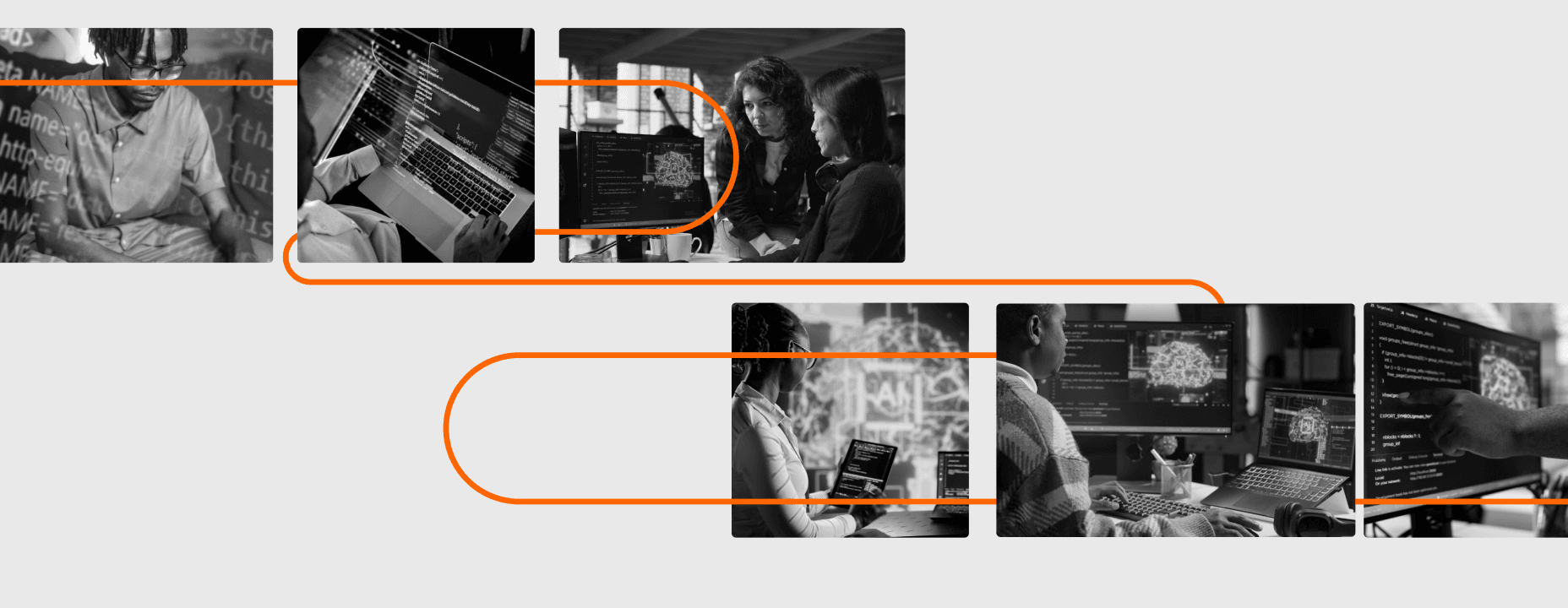Artificial intelligence will not eliminate developer jobs. It will eliminate mediocre performances.

Key Takeaways
- AI is not eliminating the profession, but the repetitive tasks and the developers who became complacent.
- The differentiator today is not writing basic code, but designing solutions, architecting systems, integrating data, and translating business into technology.
- The profession has become more strategic and valued, with emphasis on those who know how to use AI as an ally.
In recent years, artificial intelligence has shifted from being a topic of futurism to becoming routine within development teams. What once seemed like a threat to technical work has become a productivity tool. And more: it has become a new field of activity for those who program.
Meanwhile, the numbers tell a very different story from the apocalyptic hysteria. From 2019 to 2024, the number of developers in the world grew by 24%. There are now 28.7 million professionals and growing. The use of AI has also become standard. According to recent data, 83% of developers already use AI-based tools to accelerate their work. What is happening is not the end of the profession. It is a silent migration of human effort toward tasks that require more reasoning and less repetition.

AI is eliminating repetition, not work
For those who closely follow the workflow of technical teams, the movement is clear. Tools like GitHub Copilot, ChatGPT, Amazon CodeWhisperer and many others have taken care of the most tedious parts: boilerplate, scaffolding, tests, low-level debugging, initial documentation writing. They work like autocomplete on steroids, and this has a direct effect on what is expected from a good developer.
Simple code is no longer a differentiator. The reasoning behind the code is.
Today, what is most valued in a technical professional is their ability to compose solutions. Architect systems with multiple integrations. Make technical choices with product impact. Understand data as part of application design. Formulate good prompts. Translate business problems into applicable technology. And this cannot be outsourced to AI. At least not yet.
Demand has changed shape and raised the bar
What is changing is the profile of the professional, not their existence. Previously, much of the development work involved repetitive tasks. Today, these tasks are already or will soon be automated. And professionals’ time is being redirected to more critical areas of the system: architecture, integration between teams and products, data governance, prompt engineering, strategic review.
In other words, AI is not downsizing the technical team. It is eliminating boring tasks and mediocre performances by developers who stayed behind. It is creating new opportunities for those who master the technique, understand the business, and know how to work with AI as an ally.
At the same time, software projects have grown in size and importance. Most digital products today are more complex than they were five years ago, and teams increasingly need people who can understand technology in the context of the product. The idea of an isolated developer who receives a specification and delivers code is outdated. Companies now seek professionals with a broad vision: business, data, and AI all at once.
Those who stayed behind are being left behind
What AI is doing, in practice, is shedding light on the technical mediocrity that once hid behind volume. The developer who got used to solving everything with ready-made tutorials and Stack Overflow became redundant. Those who never read a line of documentation, who don’t understand how their code behaves in production, who don’t know the difference between a prompt and a command, are being swallowed up by tools that do this better and faster.
It is not a process of mass unemployment. It is a natural pruning.
And, contrary to what some imagined, the developer has not become dispensable, they have become more strategic. Instead of writing basic scripts, they write complex prompts. Instead of debugging code by hand, they configure automated workflows. Instead of memorizing syntax, they design integrations between systems. Technical work has become more mental than manual. More strategic than mechanical.
Conclusion
Artificial intelligence is not killing the developer career. It is killing the comfort zone. Professionals who understand the new technical context, who know how AI can be applied to the development workflow, who master system, data and product engineering at the same time, are more valued than ever.
The collision between AI and development does not eliminate the work. It concentrates the value on those who know what they are doing. And, in this process, it transforms the profession. For the better.
